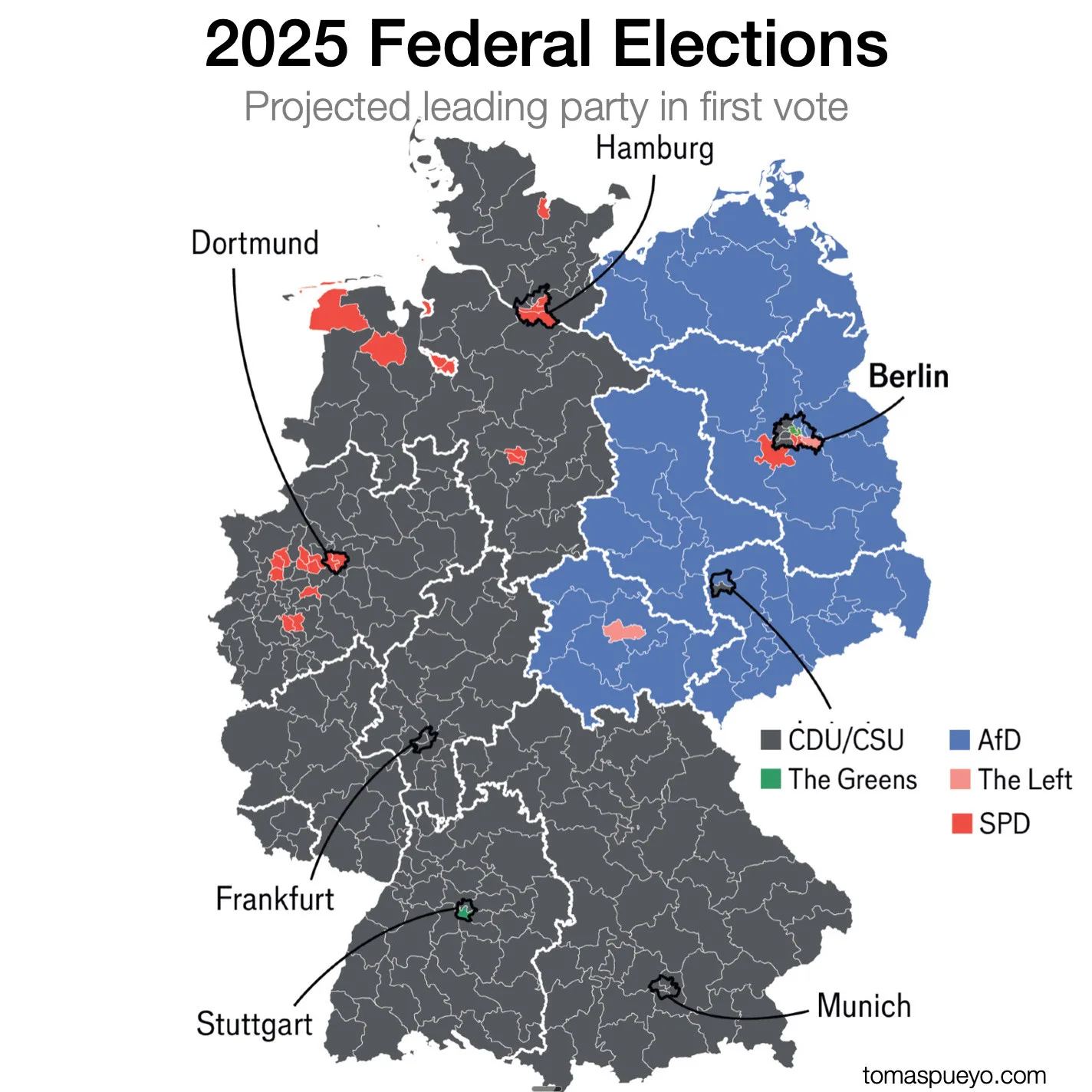The recent federal elections in Germany have resulted in significant changes in the political landscape, with the Christian Democratic Union (CDU) emerging as the largest party, led by Friedrich Merz. The CDU secured 30% of the vote, while the Social Democratic Party (SPD) led by Chancellor Olaf Scholz followed with 25%. Notably, the far-right Alternative for Germany (AfD) achieved its highest result yet, garnering 20% of the vote, reflecting a shift in voter sentiment towards right-wing populism. This election witnessed a high voter turnout of 82%, indicating the electorate’s engagement with the pivotal issues at stake, including inflation and immigration. In the aftermath of the election, scholars and political analysts are examining the possibility of coalition formations, as traditional alliances face challenges. Friedrich Merz stated, ‘This is the start of a new era for Germany,’ signaling his intent to form a coalition government that may include the AfD, despite its controversial views. Olaf Scholz, on the other hand, remarked, ‘While we face challenges from right-wing politics, we must continue to uphold democracy and inclusivity.’ The projected coalition scenarios illustrate potential collaborations that could reshape German governance, with future discussions set to navigate party ideologies and voter expectations.
German Federal Election Results: Coalition Dynamics and Shifting Politics













